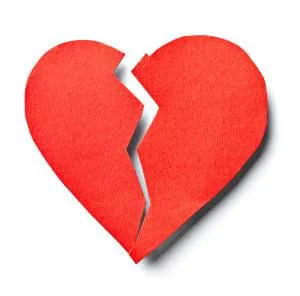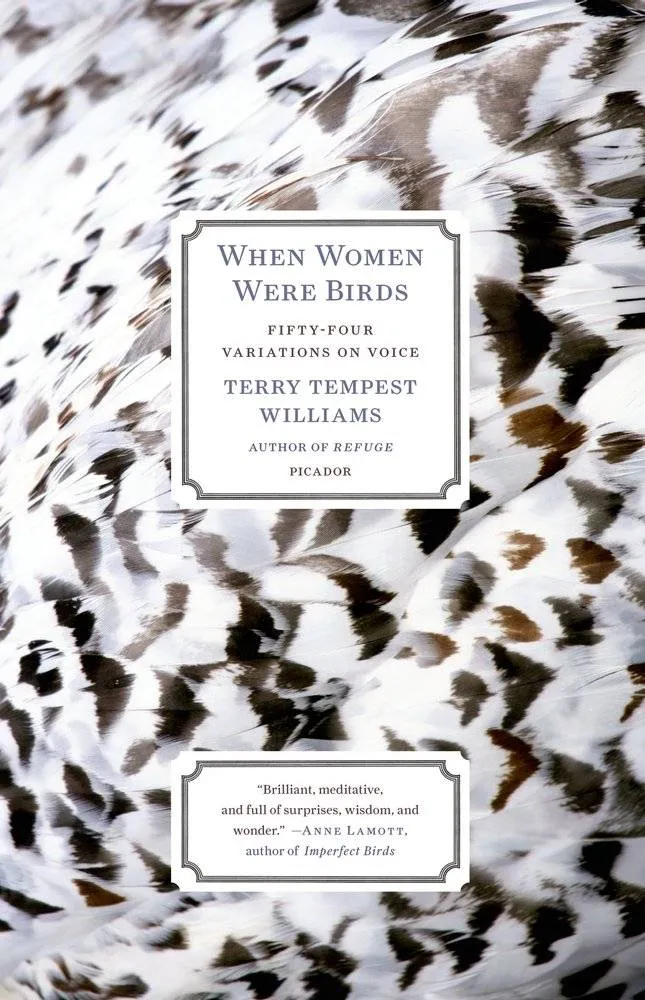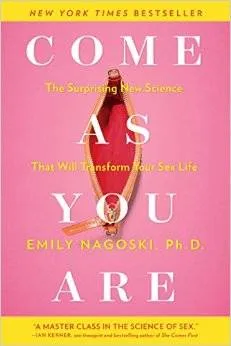
A Feminist Divorcee’s Reading List
This content contains affiliate links. When you buy through these links, we may earn an affiliate commission.
There are a lot of great books out there about divorce, and a lot of great lists pointing you to them. But that’s not what I wanted to read during my separation and subsequent divorce (which took, all told, more than three years), and this is not going to be that kind of reading list. What I wanted instead were books that looked at love, relationships, and personal identity from as many different angles as I could find. Mostly because I wasn’t sure what I believed about any of that, or about myself anymore. Who are you when you’re leaving someone you swore to love, honor, and cherish? Regardless of the reasons for your divorce, or how long you were married, I hope you’ll find some inspiration, some comfort, some realtalk, and some fun in the below.
Tiny Beautiful Things, Cheryl Strayed: This is my go-to book for tough times. The letters Strayed received as Dear Sugar tackle a huge range of interpersonal and individual problems, including infidelity, abuse, addiction, and just general NOPEness.  Her ability to dig truth out of the messiness of life is astonishing; prepare for tears. And, pro-tip: Read all of them (in order or shuffle, whichever) — the ones you think least apply to you can turn out to be the most useful.
When Women Were Birds, Terry Tempest Williams: What does it mean to have a voice? What does it mean to not use it? Williams inherited her mother’s journals, and on an anniversary of her death she opened them up only to find them blank. All of them, three shelves worth. Her meditations on what it means to speak or not speak, to try and understand her mother’s story as well as her own life, will give you time and space to consider your own voice.
Bad Feminist, Roxane Gay: This book has nothing to do with marriage, but a whole lot to do with relationships. Relationships with people, with media, with our own minds, with our friends, with our bodies, with the people we love, with the people who drive us crazy. In thinking about what it means to be a feminist — and an imperfect one — Gay also lets us think about what it means to keep trying, even when we know we’re probably not “doing it right.”
Come As You Are, Emily Nagoski: I wish this book had existed for me pre-college, but it’s just as useful (if not more?) when you’re starting to think about sex with new, unknown, different people. Whether you find the idea terrifying or thrilling, Nagoski has advice you need to hear. The myriad different ways in which women experience their sexuality, the impact of trauma, the misunderstandings that happen between couples,
Her ability to dig truth out of the messiness of life is astonishing; prepare for tears. And, pro-tip: Read all of them (in order or shuffle, whichever) — the ones you think least apply to you can turn out to be the most useful.
When Women Were Birds, Terry Tempest Williams: What does it mean to have a voice? What does it mean to not use it? Williams inherited her mother’s journals, and on an anniversary of her death she opened them up only to find them blank. All of them, three shelves worth. Her meditations on what it means to speak or not speak, to try and understand her mother’s story as well as her own life, will give you time and space to consider your own voice.
Bad Feminist, Roxane Gay: This book has nothing to do with marriage, but a whole lot to do with relationships. Relationships with people, with media, with our own minds, with our friends, with our bodies, with the people we love, with the people who drive us crazy. In thinking about what it means to be a feminist — and an imperfect one — Gay also lets us think about what it means to keep trying, even when we know we’re probably not “doing it right.”
Come As You Are, Emily Nagoski: I wish this book had existed for me pre-college, but it’s just as useful (if not more?) when you’re starting to think about sex with new, unknown, different people. Whether you find the idea terrifying or thrilling, Nagoski has advice you need to hear. The myriad different ways in which women experience their sexuality, the impact of trauma, the misunderstandings that happen between couples,  the mental gymnastics women often put themselves through over the course of a sexual and emotional relationship, and the research on how understand yourself are all in here.
A House of My Own, Sandra Cisneros: In the introduction to this collection of essays, which spans 20 years of Cisneros’ life, she writes: “We tell a story to survive a memory in much the same way the oyster survives an invading grain of sand. The pearl is the story of our lives, even if most wouldn’t admit it.” Prior to the divorce, you and your significant other were telling a story together. Now you’ll be telling separate (and in some instances, competing) stories. Watching Cisneros put together the story of her own life, collecting the speeches she gave and articles and essays she wrote and assembling them into a whole, is both a reminder that that there is room for change, growth, false starts, reflection, backtracks, big jumps forward all in the course of one life.
While your mileage may vary, romance novels were my distraction, my brain-popcorn, and my salvation. I spent the three days after kicking out my ex ensconced on a friend’s couch, sobbing into a pillow and reading my way through Nora Roberts’ Circle Trilogy. There is real comfort to be found in reading about over-the-top, all-out, earth-shattering love; you don’t currently have it, and you might not ever, but sometimes it just helps to believe. In addition to that series, I recommend anything and everything written by: Alyssa Cole, Eloisa James, Beverly Jenkins, Sarah MacLean, Courtney Milan, and Nalini Singh.
the mental gymnastics women often put themselves through over the course of a sexual and emotional relationship, and the research on how understand yourself are all in here.
A House of My Own, Sandra Cisneros: In the introduction to this collection of essays, which spans 20 years of Cisneros’ life, she writes: “We tell a story to survive a memory in much the same way the oyster survives an invading grain of sand. The pearl is the story of our lives, even if most wouldn’t admit it.” Prior to the divorce, you and your significant other were telling a story together. Now you’ll be telling separate (and in some instances, competing) stories. Watching Cisneros put together the story of her own life, collecting the speeches she gave and articles and essays she wrote and assembling them into a whole, is both a reminder that that there is room for change, growth, false starts, reflection, backtracks, big jumps forward all in the course of one life.
While your mileage may vary, romance novels were my distraction, my brain-popcorn, and my salvation. I spent the three days after kicking out my ex ensconced on a friend’s couch, sobbing into a pillow and reading my way through Nora Roberts’ Circle Trilogy. There is real comfort to be found in reading about over-the-top, all-out, earth-shattering love; you don’t currently have it, and you might not ever, but sometimes it just helps to believe. In addition to that series, I recommend anything and everything written by: Alyssa Cole, Eloisa James, Beverly Jenkins, Sarah MacLean, Courtney Milan, and Nalini Singh.
 Her ability to dig truth out of the messiness of life is astonishing; prepare for tears. And, pro-tip: Read all of them (in order or shuffle, whichever) — the ones you think least apply to you can turn out to be the most useful.
When Women Were Birds, Terry Tempest Williams: What does it mean to have a voice? What does it mean to not use it? Williams inherited her mother’s journals, and on an anniversary of her death she opened them up only to find them blank. All of them, three shelves worth. Her meditations on what it means to speak or not speak, to try and understand her mother’s story as well as her own life, will give you time and space to consider your own voice.
Bad Feminist, Roxane Gay: This book has nothing to do with marriage, but a whole lot to do with relationships. Relationships with people, with media, with our own minds, with our friends, with our bodies, with the people we love, with the people who drive us crazy. In thinking about what it means to be a feminist — and an imperfect one — Gay also lets us think about what it means to keep trying, even when we know we’re probably not “doing it right.”
Come As You Are, Emily Nagoski: I wish this book had existed for me pre-college, but it’s just as useful (if not more?) when you’re starting to think about sex with new, unknown, different people. Whether you find the idea terrifying or thrilling, Nagoski has advice you need to hear. The myriad different ways in which women experience their sexuality, the impact of trauma, the misunderstandings that happen between couples,
Her ability to dig truth out of the messiness of life is astonishing; prepare for tears. And, pro-tip: Read all of them (in order or shuffle, whichever) — the ones you think least apply to you can turn out to be the most useful.
When Women Were Birds, Terry Tempest Williams: What does it mean to have a voice? What does it mean to not use it? Williams inherited her mother’s journals, and on an anniversary of her death she opened them up only to find them blank. All of them, three shelves worth. Her meditations on what it means to speak or not speak, to try and understand her mother’s story as well as her own life, will give you time and space to consider your own voice.
Bad Feminist, Roxane Gay: This book has nothing to do with marriage, but a whole lot to do with relationships. Relationships with people, with media, with our own minds, with our friends, with our bodies, with the people we love, with the people who drive us crazy. In thinking about what it means to be a feminist — and an imperfect one — Gay also lets us think about what it means to keep trying, even when we know we’re probably not “doing it right.”
Come As You Are, Emily Nagoski: I wish this book had existed for me pre-college, but it’s just as useful (if not more?) when you’re starting to think about sex with new, unknown, different people. Whether you find the idea terrifying or thrilling, Nagoski has advice you need to hear. The myriad different ways in which women experience their sexuality, the impact of trauma, the misunderstandings that happen between couples,  the mental gymnastics women often put themselves through over the course of a sexual and emotional relationship, and the research on how understand yourself are all in here.
A House of My Own, Sandra Cisneros: In the introduction to this collection of essays, which spans 20 years of Cisneros’ life, she writes: “We tell a story to survive a memory in much the same way the oyster survives an invading grain of sand. The pearl is the story of our lives, even if most wouldn’t admit it.” Prior to the divorce, you and your significant other were telling a story together. Now you’ll be telling separate (and in some instances, competing) stories. Watching Cisneros put together the story of her own life, collecting the speeches she gave and articles and essays she wrote and assembling them into a whole, is both a reminder that that there is room for change, growth, false starts, reflection, backtracks, big jumps forward all in the course of one life.
While your mileage may vary, romance novels were my distraction, my brain-popcorn, and my salvation. I spent the three days after kicking out my ex ensconced on a friend’s couch, sobbing into a pillow and reading my way through Nora Roberts’ Circle Trilogy. There is real comfort to be found in reading about over-the-top, all-out, earth-shattering love; you don’t currently have it, and you might not ever, but sometimes it just helps to believe. In addition to that series, I recommend anything and everything written by: Alyssa Cole, Eloisa James, Beverly Jenkins, Sarah MacLean, Courtney Milan, and Nalini Singh.
the mental gymnastics women often put themselves through over the course of a sexual and emotional relationship, and the research on how understand yourself are all in here.
A House of My Own, Sandra Cisneros: In the introduction to this collection of essays, which spans 20 years of Cisneros’ life, she writes: “We tell a story to survive a memory in much the same way the oyster survives an invading grain of sand. The pearl is the story of our lives, even if most wouldn’t admit it.” Prior to the divorce, you and your significant other were telling a story together. Now you’ll be telling separate (and in some instances, competing) stories. Watching Cisneros put together the story of her own life, collecting the speeches she gave and articles and essays she wrote and assembling them into a whole, is both a reminder that that there is room for change, growth, false starts, reflection, backtracks, big jumps forward all in the course of one life.
While your mileage may vary, romance novels were my distraction, my brain-popcorn, and my salvation. I spent the three days after kicking out my ex ensconced on a friend’s couch, sobbing into a pillow and reading my way through Nora Roberts’ Circle Trilogy. There is real comfort to be found in reading about over-the-top, all-out, earth-shattering love; you don’t currently have it, and you might not ever, but sometimes it just helps to believe. In addition to that series, I recommend anything and everything written by: Alyssa Cole, Eloisa James, Beverly Jenkins, Sarah MacLean, Courtney Milan, and Nalini Singh. 








